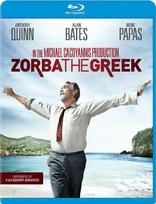Zorba the Greek Blu-ray Movie
HomeZorba the Greek Blu-ray Movie 
20th Century Fox | 1964 | 142 min | Not rated | Jun 05, 2012Movie rating
7.3 | / 10 |
Blu-ray rating
| Users | 4.0 | |
| Reviewer | 4.5 | |
| Overall | 4.3 |
Overview
Zorba the Greek (1964)
An uptight English writer traveling to Crete on a matter of business finds his life changed forever when he meets the gregarious Alexis Zorba.
Starring: Anthony Quinn, Alan Bates, Irene Papas, Lila Kedrova, Yorgo VoyagisDirector: Michael Cacoyannis
| Drama | Uncertain |
| Adventure | Uncertain |
Specifications
Video
Video codec: MPEG-4 AVC
Video resolution: 1080p
Aspect ratio: 1.66:1
Original aspect ratio: 1.85:1
Audio
English: DTS-HD Master Audio Mono (48kHz, 24-bit)
Spanish: Dolby Digital Mono
French: Dolby Digital Mono
French: Dolby Digital Mono
Spanish: Dolby Digital Mono (Spain)
German: Dolby Digital Mono
Italian: Dolby Digital Mono
Portuguese: Dolby Digital Mono
Czech: Dolby Digital Mono
Hungarian: Dolby Digital Mono
Canadian and European French, Latin American and Castilian Spanish, Brazilian Portuguese; DD all 192 kbps
Subtitles
English SDH, French, German, Italian, Portuguese, Spanish, Czech, Danish, Dutch, Finnish, Greek, Hebrew, Hungarian, Norwegian, Swedish
Discs
50GB Blu-ray Disc
Single disc (1 BD)
Playback
Region free
Review
Rating summary
| Movie | 4.5 | |
| Video | 4.5 | |
| Audio | 4.0 | |
| Extras | 4.0 | |
| Overall | 4.5 |
Zorba the Greek Blu-ray Movie Review
It's all Greek to him.
Reviewed by Jeffrey Kauffman June 7, 2013Life is what you doWhen John Kander and Fred Ebb decided to follow up their massive Broadway success with Cabaret by musicalizing the unlikely source of Nikos Kazantzakis' Zorba the Greek, they opened their sung version with the above sentiment. There’s an inherent melancholy, not to mention downright morbidity, in that brief sentence, and in fact when the film version’s iconic Zorba, Anthony Quinn, took over the role in the musical for a 1980s Broadway revival (Herschel Bernardi had played Zorba in its relatively brief original Broadway run), lyricist Fred Ebb may have had second thoughts about the depressive aspect of that formulation, for he slightly tweaked his lyric to read:
While you’re waiting to die.
Life is what you doThat second iteration might be more a propos for the larger than life character of Alexis Zorba (Anthony Quinn), but the first version may in fact be a better summary of at least some of the supporting characters who inhabited Nikos Kazantzakis’ novel, one which evidently first appeared in Greek in 1946 but wasn't translated into English until the early fifties, as well as the film version which followed close to two decades later. It’s actually one of the supreme ironies of Kander and Ebb’s career that their Zorba was accused of being “too dark” for a musical—this, after Cabaret, which was hardly an all singing, all dancing laugh fest. But there’s little doubt that the source material for Zorba, in fact rather like the Christopher Isherwood stories which inspired Cabaret, had a morose element that made a musical a hard sell. So, why then does the film version of Zorba the Greek, despite threading the same roiling needle that the musical obviously did, often sing so effortlessly when the theatrical experience designed to sing merely faltered?
‘Til the moment you die.
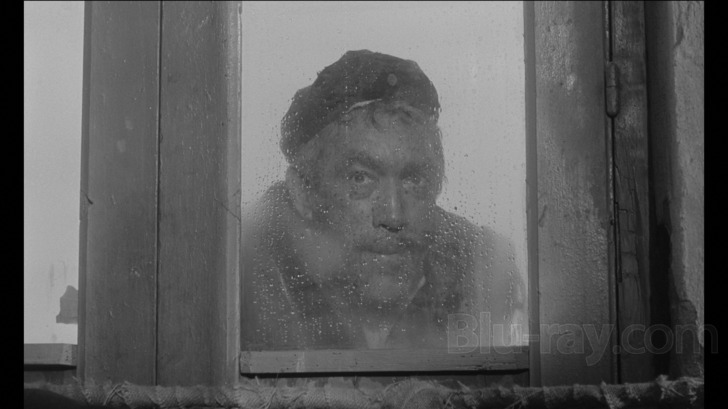
In some ways, it’s perhaps easy to understand why Kander and Ebb developed Zorba as their follow up to Cabaret, for the two entities share some unexpected similarities. Both posit uptight, possibly sexually repressed, young writers coming into a foreign land and dealing with an eccentric “local” (whether native or not) who helps teach the writer how to let go and live. There are of course a gaggle of other colorful supporting characters, including the common element in both pieces of an unusual elderly woman running either a boarding house or hotel. But this is where perhaps the two properties’ commonalities end, and that in turn can be traced to their disparate sources. Though ostensibly a novelist, Christopher Isherwood was perhaps more of a journalist and raconteur, one who melded his private experiences, notably his life as a gay man, into several of his pieces. Nikos Kazantzakis, on the other hand, was much more of a philosopher, even a poet, one concerned with larger issues of humanity and even ontological and epistemological questions than the average novelist. (Kazantzakis sprang to international fame not so much for Zorba the Greek, but for his scholarly translations of The Odyssey. Kazantzakis also wrote the source novel from which Martin Scorsese crafted the notoriously controversial The Last Temptation of Christ.)
Michael Cacoyannis, who produced, directed and wrote the screen version of Zorba the Greek, was, like Kazantzakis himself, a man with rather serious underpinnings that often informed his supposedly “popular” entertainments. Also like Kazantzakis, Cacoyannis made international waves with some of his translations, notably some Shakespeare classics which Cacoyannis translated into Greek. Both Kazantzakis and Cacoyannis had an overweening interest in classical writing, whether that be plays or pure literature, and that interest informs, albeit rather subtly at times, Zorba the Greek in both its novel and film versions. (Interestingly, Kander and Ebb sought to modernize one of the most famous tropes of classical theater—namely the Greek Chorus—for their musical version of Zorba, but that was one element which seemed to actually distance the audience from the story, rather than drawing them into it.)
Our entrée into the world of Zorba and the residents of Crete is Basil (Alan Bates), who in Kazantzakis’ original conception was Greek himself, but who in Cacoyannis’ film adaptation becomes half-Greek, half-British (perhaps, as commentator Demetrios Liappas mentions, to overcome language issues). Basil fancies himself an author, though he admits he hasn’t written anything for months, but he’s coming to Crete to reactivate a mine on lands his family has owned for generations. While he waits in a torrential downpour to board the ship for Crete, he is more or less accosted by Zorba, who has evidently been scoping the young man out. Zorba puts himself forth as an expert in whatever Basil may need, including mining. Perhaps against his initial inclinations, Basil agrees to take Zorba on as an employee. What actually occurs, however, is that Zorba ends up acting as a mentor and virtual tourguide for Basil as the young expat attempts to come to terms with early 20th century village life on an already isolated island.
The rest of the film plays out as Zorba and Basil attempt (unsuccessfully) to reinvigorate Basil’s mine and then move on to other pursuits, not the least of which are two females. The townspeople have suggested that the two men stay at the fancifully named Hotel Ritz, run by a French émigré named Madame Hortense (Lila Kedrova, an Oscar winner for this role). Madame Hortense is a flighty woman somewhat addled by memories, a kind of modern version of The Madwoman of Chaillot. Zorba, lusty male that he is, of course takes an immediate shine to her, though through some subterfuge on Basil’s part, Hortense comes to believe that Zorba’s attentions aren’t purely carnal.
Basil, on the other hand, is immediately attracted to an intense widow (Irene Papas) who is the subject of much village gossip, especially since a younger male obviously has eyes for her, but she refuses to return his amorous glances. Both of these romances cartwheel toward rather sad conclusions, in fact tragic ones in at least one case—another reason that the musical version had a hard time matching Cabaret’s success.
Literary critics were thrown for a loop when Zorba the Greek was translated into English, not knowing quite what to make of such an odd, irascible focal character. Some of that confusion is ameliorated in Cacoyannis’ screenplay, which is fully brought to life by Quinn in one of his most commanding performances (clear eyed analysts may rightly argue that Quinn deserved the Best Actor Oscar that year much more than Rex Harrison’s amusing, but hardly challenging, turn as Henry Higgins in My Fair Lady). Quinn, himself a lifeforce of significant energy, makes Zorba an unforgettable character, one who helps to make the film’s relentless emphasis on life, even as death abounds, perfectly understandable.
Zorba the Greek Blu-ray Movie, Video Quality 
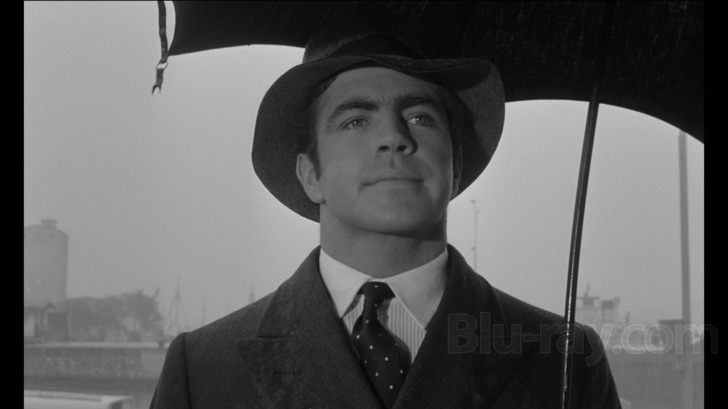
Zorba the Greek is presented on Blu-ray courtesy of 20th Century Fox Home Entertainment with a largely flawless AVC encoded 1080p transfer in 1.66:1. Walter Lassally's Oscar winning black and white photography is nicely rendered here, with a beautifully filmic appearance that maintains both the crystal clear fine detail of extreme close-ups, as well as the admittedly softer establishing shots of Crete (much of the film was shot on location). Blacks are true and deep and the film's rather wide array of grays are also very well represented. There are just a couple of niggling concerns here, mostly to do with the stability of the image. There's some clear, if minor, motion judder in some panning shots (especially in the first scenes of the film). Otherwise, though, this is a stellar high definition presentation of a classic film.
Zorba the Greek Blu-ray Movie, Audio Quality 
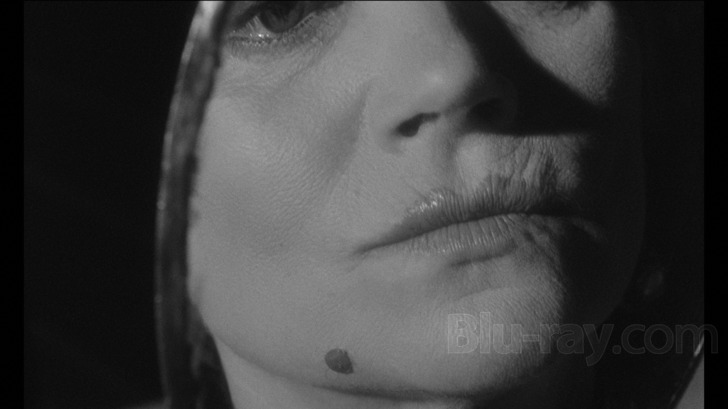
Zorba the Greek's lossless DTS-HD Master Audio Mono track may be relatively narrow and shallow, but it's quite boisterous if taken on its own terms. Dialogue is always cleanly presented, and Mikis Theodorakis' fantastically evocative score sounds very lively. Theodorakis' theme became a rather unlikely hit for The Tijuana Brass, of all ensembles.
Zorba the Greek Blu-ray Movie, Special Features and Extras 
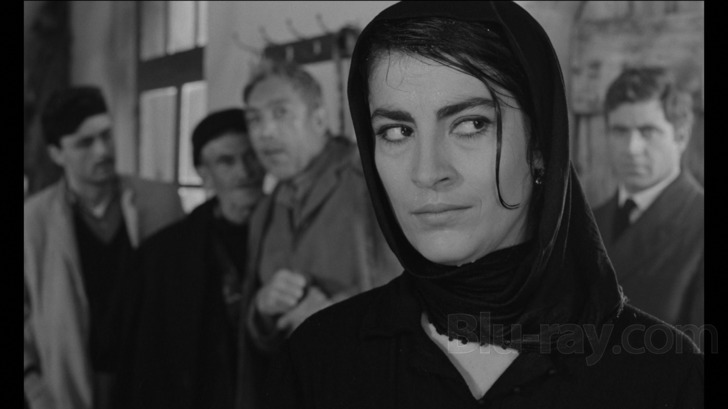
- Commentary by Director Michael Cacoyannis and Demetrios Liappas. This is a near perfect commentary by Liappas, an historian and Kazantzakis scholar, and Cacoyannis. Liappas gives us incredible background on the author and Zorba the Greek (including the real life character upon whom Zorba was based), while Cacoyannis goes into quite some detail on the shoot of this film as well as his long and illustrious career. Fascinating from start to finish.
- Biography: Anthony Quinn "A Lust for Life" (480i; 44:17) is a typically exhaustive Biography episode that makes for a great companion piece with Cacoyannis' memories of working with Quinn contained in the commentary track.
- Alternate Intro (480i; 4:08) may in fact blend in better with Kazantkakis' philosophical and religious leanings, but it would have made for one bizarre opening.
- Fox Movietone News (480i; 6:31) contains some fascinating footage (without sound) of Quinn and the cast on set.
- Trailers and TV Spot (480i; 4:48)
Zorba the Greek Blu-ray Movie, Overall Score and Recommendation 
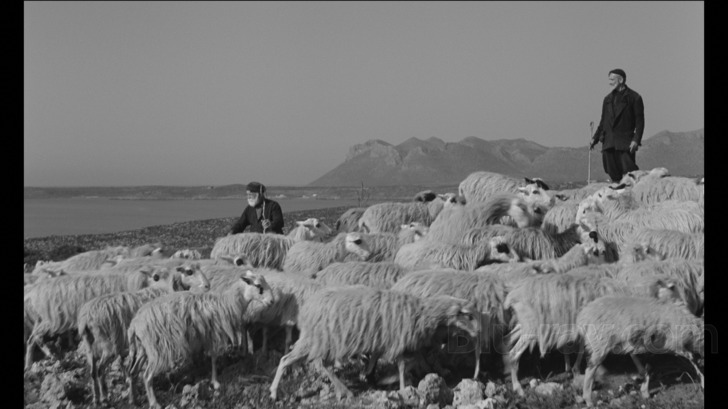
Quinn, Kedrova and Cacoyannis all reteamed for the revival of the musical Zorba in the 1980s, one of a very few times when a remount has run longer than the original Broadway version. And while I personally would argue that the musical is much better than it's largely been given credit for being, there's simply no substitute for this unbelievably touching and beautifully performed film. There's tragedy abounding in Zorba the Greek, especially in the film's third act, but there's rarely been such a life affirming statement made in the annals of cinema. This Blu-ray looks and sounds superb, and comes stocked with excellent supplements. Highly recommended.
Similar titles
Similar titles you might also like

Julius Caesar
1970

The Hindenburg
1975

I, Claudius
1976

World Trade Center 4K
2006

Disgrace
2008

The Egyptian
Limited Edition to 3000 - SOLD OUT
1954

To Kill a King
2003

The Promise
2016

Day of the Falcon
Black Gold
2011

Munich
2005

The Right Stuff
30th Anniversary Edition
1983

Seven Years in Tibet
1997

Moby Dick
2011

Excalibur
1981

The Last King
Birkebeinerne
2016

Parkland
2013

The Boy in the Striped Pajamas
2008

Men of Honor
2000

The Terror: The Complete First Season
2018

Flame Over India
North West Frontier
1959
